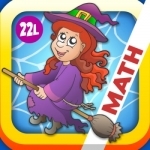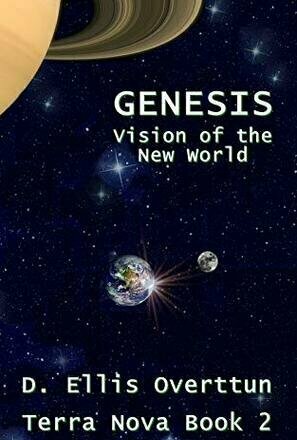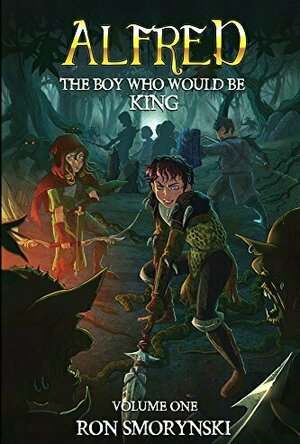Phil Leader (619 KP) rated Genesis: Vision of the New World (Terra Nova #2) in Books
Nov 13, 2019
This is a long book, but like the first one it covers a lot of ground. There is a far more investigation of the Gendu, their politics and their religion. The succession of Darius as head of the Gendu, and the rise of a greedy and flawed priest in the religious sect provide the backbone of the story. The Celesti are frustrated by only being allowed to observe and not interfere, but are focused on exploring the anomaly. Odessa also starts a related project to enhance some of the indigenous apes.
This is not a book that can be read in isolation. As the middle of a trilogy it answers few questions from the first book and raises many that are due to be resolved in the final installment. It is clear that everything is converging, momentum carrying people and events along as much they are exerting their own control. The author has constructed a world where the plot is driven from a number of different directions and this ensures that each chapter has something to add.
The writing is very confident. Overttun has really found his voice as an author and uses it to show the reader all of his creation. From the clinical efficiency of Odessa's experiments to the dirt and grime of the seedier areas of Gendu society, the narrative weaves its way inexorably onwards. The prose is lean and efficient, lending impetus to the story. The exploits of the already known characters will entertain as they are old friends, the new characters are all interesting and nuanced.
This is building to be a fabulous epic trilogy, epic in depth, breadth and scale. It isn't science fiction, it isn't a political thriller, it isn't a philosophical treatise. It is all these and more. I really cannot wait to see what happens next. Stunning.
EmersonRose (320 KP) rated Alfred: The Boy Who Would Be King in Books
Nov 20, 2019
Alfred is a determined, hopeful, excited kid living out a child’s fantasy. He manages to stay strong through horrible circumstances and uses his knowledge of the period along with that of his own time to try and make things better for his people. The mashing together of periods offers plenty of hilarious moments as Alfred tries to explain things like TV and pro-wrestlers. His knowledge of things like agriculture and battle defenses quickly become lifesavers for the peasants who have accepted the return of the king.
This fantastical adventure is a beautiful story that balances the dark, harsh realities of 6997428survival against both enemies and natural, the struggle of the weight thrust upon Alfred’s shoulders, while also remaining lighthearted, funny, and fun. The story unfolds like a puzzle before the reader, much like it does for Alfred, as you discover more about his family, magic, and the politics of this magical world. Author Ron Smorynski has done an incredible job of creating an extraordinary world and characters that you can become invested it. The story captures the pure adventure and action so longed for in fantasy adventures while also tackling growing up, history, and family struggles. To me, it brings to mind such classics as Narnia and The Castle in the Attic.
The book is an excellent beginning. While the story itself is well rounded in itself, the real magic is in the story that it has left to tell. Throughout the book, we get the beginnings of magical rules, political struggle, villains powers, and the complicated history of Alfred’s family and those that knew them. The book leaves you with as many secrets as it answers and simply begs for a sequel. I am excited to see more from this author and continue my journey with Alfred and his friends, hopefully soon!

Grades K to 5 Kids Math Games
Education and Games
App
We make math fun & engaging. Over 20 Million kids use the Splash Math program to Boost Confidence,...

UK Car Driving Theory Test
Education and Reference
App
Official and latest theory test revision questions to prepare your theory test. For iPhone, iPad and...

Grammar Express: Tenses
Education and Reference
App
• Beautifully illustrated revision notes. • Over 1000 examples with Grammar Rules. • Over...

Minitutor: Number Crusher
Education and Games
App
Practice early math skills with a fun learning game for kids. Learn the numbers, how to count and...

Basic Math with Mathaliens
Education
App
Learning basic math has never been more fun. You will love to see your children making progress in...

Adventure Basic School Math · Math Drills Challenge and Halloween Math Bingo Learning Games (Numbers, Addition, Subtraction, Multiplication and Division) for Kids: Preschool, Kindergarten, Grade 1, 2, 3 and 4 by Abby Monkey®
Education and Games
App
33 % OFF SALE - TODAY: December 22-31, 2015 * Developed by an award-winning education studio,...

Audiobooks - 5,239 Classics Ready to Listen
Book and Education
App
This is the top rated audiobook app on the planet. Browse our handpicked collections, download any...

Linux User & Developer Magazine
Book and Magazines & Newspapers
App
Linux User & Developer magazine offers the best in features, tutorials, interviews and inspiration...

